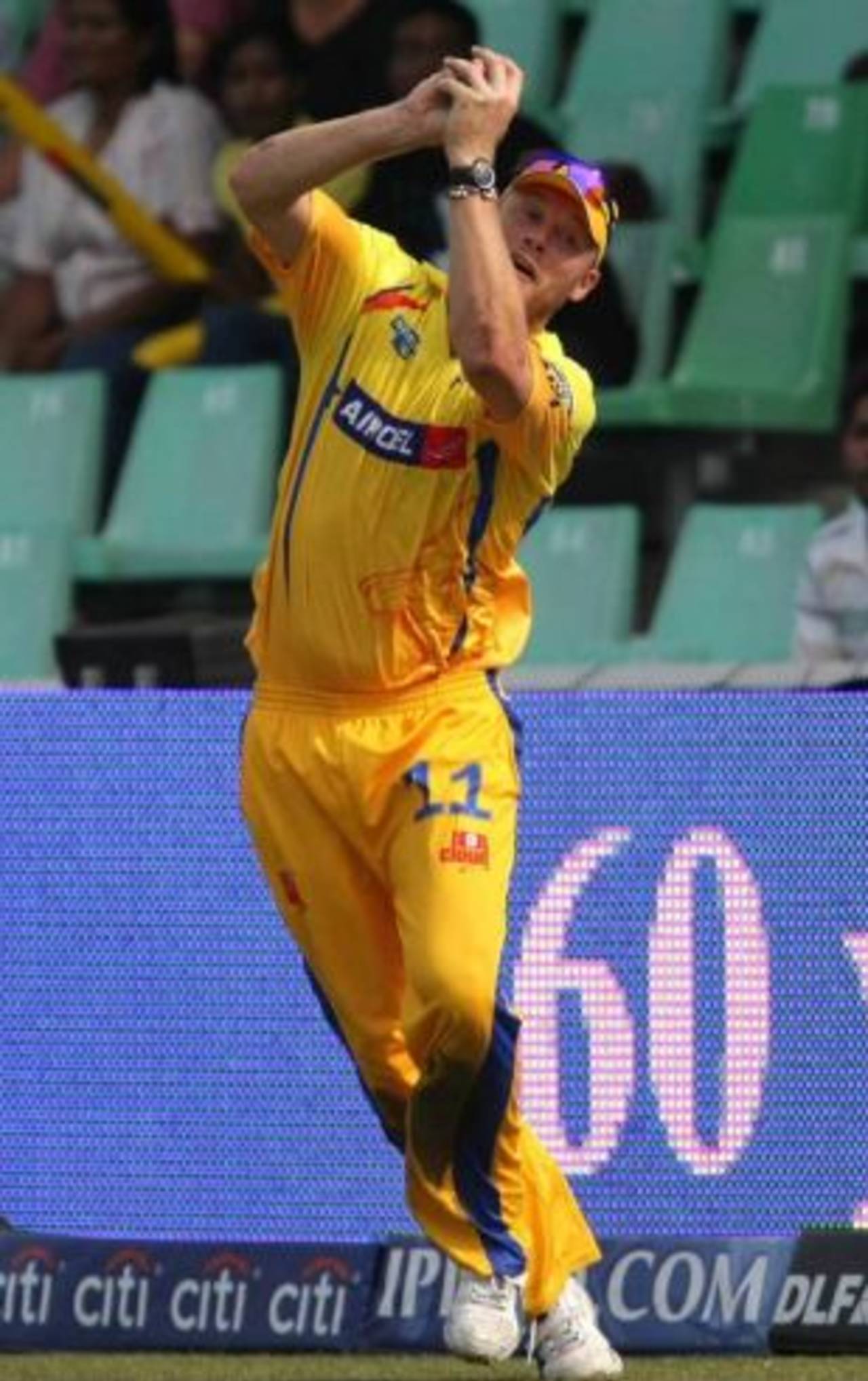Flintoff's costly experience
Andrew Strauss was asked at a press conference this week whether he had been watching the IPL and, if so, how much of that time had been spent hiding behind the sofa in fear of an injury to a star player
Andrew McGlashan
25-Apr-2009

An injury to Andrew Flintoff at the IPL is what everyone feared would happen • AFP
Andrew Strauss was asked at a press conference this week whether he had been watching the IPL and, if so, how much of that time had been spent hiding behind the sofa in fear of an injury to a star player. His response was straight batted. "There's always a chance of injury," he said. "Short of wrapping them up in cotton wool and not allowing them out of their beds there's nothing you can do. We play cricket, that's what we do. I'm not overly worried."
He'll be a lot more worried now after Andrew Flintoff limped home for a knee operation. As the ECB's press release was at pains to point out, injury can indeed occur at any time, doing anything - Phil DeFreitas missed the first two Tests of the 1993 tour of India after slipping in the shower - but there are ways and means of reducing one's exposure to risk. Allowing Flintoff to play in the high-velocity, high-impact IPL so soon after injury will be perceived by many as a risk too great ahead of an eagerly anticipated Ashes series.
When Flintoff flew home from West Indies with a damaged hip, hours of air-time and countless column inches were devoted to the issue of whether the all-rounder should be allowed to take his place with the Chennai Super Kings in the IPL. Concerns over his fitness were partially allayed when he closed out the one-day series in the Caribbean with a hat-trick, and the green light to South Africa was given.
Hugh Morris, the managing director of England cricket, who has made more than his share of difficult decisions this winter, was presumably relieved to have been spared another, and the restraint of trade debates that would undoubtedly have arisen had he placed roadblocks in Flintoff's path. But the issue was not so cut-and-dried. Certainly, Flintoff was entitled to maximise his earnings, particularly with his international career showing signs of stalling, but as the Australians have identified, sometimes there is more to life.
If Flintoff hadn't been playing for Chennai Super Kings he could well have been playing for Lancashire, at Hove, in the County Championship. Being the player he is, Flintoff would have bowled flat-out and for a heck of a lot more overs. But he would have been doing it at home, not justifying a $1.5 million price tag, which would have brought a greater degree of sympathy however hypocritical that may seem. And, maybe not insignificantly, he would have spent a lot of time stood at second slip rather than flinging himself around an outfield.
It is true that English cricket is unhealthily obsessed with the Ashes, but therein lies a signpost to a course of action the ECB might have adopted. Victory in 2005 propelled the profile of English cricket to a height not seen in decades and Flintoff, as the headline act, became a very wealthy man in the process. Surely, if England were able to repeat that success this summer, his value would skyrocket again. The IPL isn't the only way to earn good money in cricket. It's just the quickest.
After the various debacles of the winter, which included the loss of a captain and coach, as well as the unseemly Stanford saga, the ECB's image is at a low ebb. The loss of Flintoff ahead of an Ashes summer is yet another black eye; particularly when Ricky Ponting, Michael Hussey and Mitchell Johnson have forgone the IPL's lucre to recharge ahead of their arrival in England.
At that same press conference, Strauss spoke positively about the resolution of England's protracted coaching search, and the ability to finally sit down with Andy Flower and devise plans for the summer. Central to those plans will be Flintoff but now, once again, the planning will revolve as much around how to play without Flintoff as with him.
Before England fans get too depressed (and seek solace in the statistic that shows England winning more matches when Flintoff is absent) the good news is that the he should be fit in time for the Ashes. The ECB's positive spin, which worked in overdrive on Friday, said he would be recovered in time for the ICC World Twenty20. Many people will believe that when they see it, but either way surgery is hardly an ideal preparation.
It is no coincidence that as Phillip Hughes put the finishing touches to his maiden century for Middlesex at Lord's this week, talk turned to how England might bowl to the rookie Australian opener during the Ashes. "Flintoff round the wicket" was a popular option, just as it was to Matthew Hayden and Adam Gilchrist four years ago. Whatever the numbers say, Andrew Strauss must have that option again this year, but now is left with a nervous wait. Time to hide behind that sofa.
Andrew McGlashan is assistant editor at Cricinfo